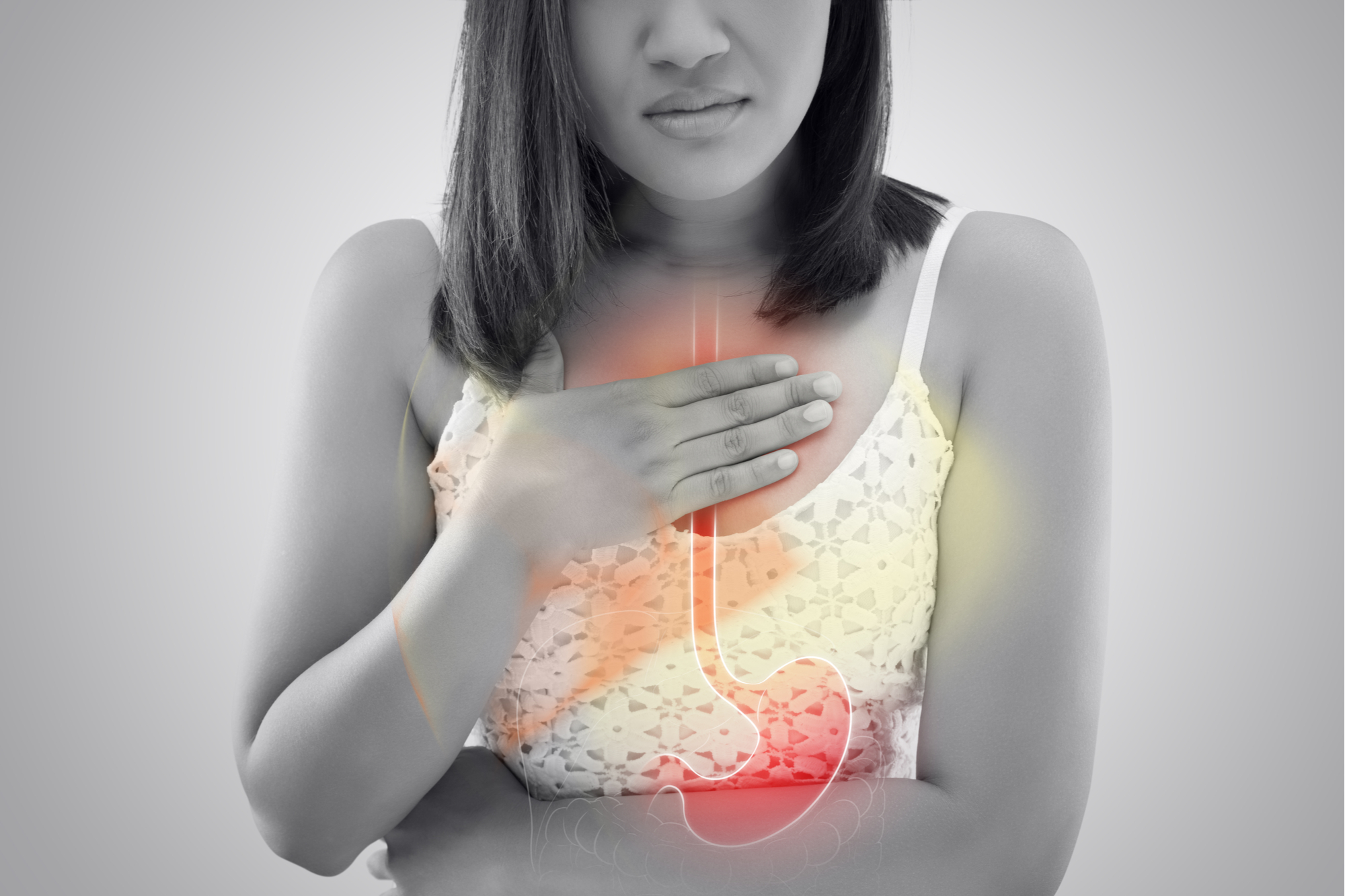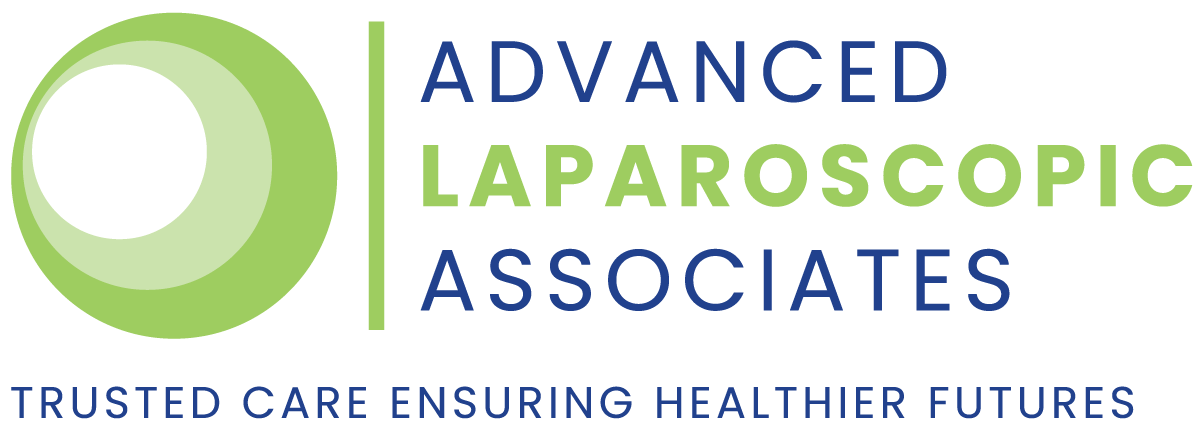How to Tell if You Have Heartburn, Acid Reflux or GERD

Are heartburn, acid reflux and gastroesophageal reflux disease (GERD) all the same thing? Burning, nausea, indigestion, acid backwash that burns the throat, upset stomach, general digestive discomfort, the ability to breathe fire… Kind of like being in a Pepto-Bismol commercial, but with the disposition of an irritable dragon.
Despite the commonality of making you miserable, these three conditions are not the same. Knowing the difference will help you properly treat symptoms; and ideally, avoid them before they start.
What is Heartburn?
Heartburn is actually a symptom and not a medical condition, and it’s very common. An estimated 60 million Americans suffer from heartburn at least once a month. Acid reflux and GERD both cause heartburn.
The term “heartburn” isn’t accurate either, as your heart isn’t involved in that fiery pain. Your digestive system, specifically your esophagus, is where heartburn occurs. Because the pain can be quite severe, heartburn is sometimes mistaken for a heart attack.
Causes
Your esophagus has a much less iron-clad lining than does your stomach. When acid flows the wrong way back up into the esophagus, it burns the esophagus and causes heartburn. Heartburn usually occurs after eating, especially fatty, spicy or acidic foods.
Bending over or lying down can make it feel worse, especially soon after eating. Excess weight and smoking can also exacerbate heartburn. Antacids are useful for treating mild and occasional heartburn.
Symptoms
Symptoms can vary from person-to-person and even differ between bouts of heartburn. The most commonly described symptoms include:
- Burning, sharp or like a tightening sensation in the chest
- Burning that moves up around the neck and throat
- Discomfort behind the breastbone
- Feeling of breathing out “heat”
What is Acid Reflux?
Acid reflux is a very common medical condition. Also known as gastroesophageal reflux (GER), acid reflux occurs when stomach acid flows back up into your esophagus. Acid reflux can trigger an episode of heartburn, usually after eating a big meal, drinking alcohol or acidic coffee.
Making lifestyle changes works well for treating occasional acid reflux. Suggestions include:
- Lose excess weight
- Eat smaller meals
- Eat slower
- Eat foods that help acid reflux
- Don’t eat two to three hours before bed
- Raise the head of your bed or get a wedge pillow to prop yourself up (preventing acid from washing back up the esophagus)
- Avoid tight clothing around your belly
- Avoid tobacco
- Avoid foods and drinks that trigger heartburn (varies by person):
- Alcohol (red wine is a common culprit)
- Chocolate
- Coffee (some people may need to avoid hot tea)
- Peppermint
- Fried or fatty foods
- Acidic foods like tomato sauce and pizza
Occasional acid reflux can be treated with antacids or H2-receptor blockers (e.g. cimetidine or famotidine). H2 blockers have been used successfully since the 1970s.
Causes
A small, circular muscle, the lower esophageal sphincter (LES), connects your esophagus to your stomach. The LES is supposed to tighten your esophagus once your food has passed through to the stomach. If the LES is weak or not functioning properly, stomach acid can leak backward into your esophagus.
Pregnancy can also cause acid reflux, of which symptoms can increase as the pregnancy progresses and pressure is placed against internal organs.
Symptoms
Besides heartburn, acid reflux can cause other symptoms:
- Persistent, dry and nagging cough
- Sore throat
- Burning and pressure in the chest area
- Bitter taste in the back of the throat
- Sour taste in the mouth
What is GERD?
GERD is a more severe, chronic form of acid reflux that has progressed. The hallmark symptom of GERD is frequent heartburn, defined as two or more times per week. Symptoms of GERD may be severe enough to disrupt your daily life.
As with acid reflux, GERD can usually be treated with medication and lifestyle changes:
- Avoiding trigger foods and drinks
- Losing excess weight
- Quitting smoking
- Avoiding alcohol
Medications that help control GERD are called proton pump inhibitors (PPIs), which were previously prescription-only, but some are now sold over-the-counter. There are many PPIs available.
Medications for GERD work by reducing the amount of acid produced in the stomach, though they do not work for everyone and some medications work better than others in each individual. Occasionally, surgery may be needed to help reinforce the LES. Minimally invasive laparoscopic surgery for GERD is available and can be performed by the specialists at Advanced Laparoscopic Associates.
Causes
Lifestyle habits and anatomy both can cause GERD, including:
- Being overweight or obese (extra pressure is placed on the stomach)
- Hiatal hernia, which can reduce pressure in the LES (hiatal hernias are not noticeable on the outside of the body like all other hernias, so this may be a hidden cause)
- Anatomical defect of the LES
- Smoking
- Alcohol
- Pregnancy
- Certain medications that weaken the LES:
- Antidepressants
- Antihistamines
- Calcium channel blockers
- Pain-relievers, such as ibuprofen
Symptoms
Besides heartburn, other signs and symptoms can include:
- Regurgitation of food or sour, burning liquid
- Persistent coughing
- Wheezing
- Difficulty swallowing
- Chest pain, which can be severe, especially lying down
When to Call Your Doctor
If you are experiencing heartburn more than twice per week and have difficulty getting it under control, or if your heartburn is interfering with daily activities, you should call your doctor. Other indications to call your doctor are if your symptoms worsen, or you experience nausea, vomiting or difficulty swallowing.
If you suspect you have GERD, the specialists at Advanced Laparoscopic Associates in North Jersey are here to help. Contact us today to make an appointment to discuss your concerns.

